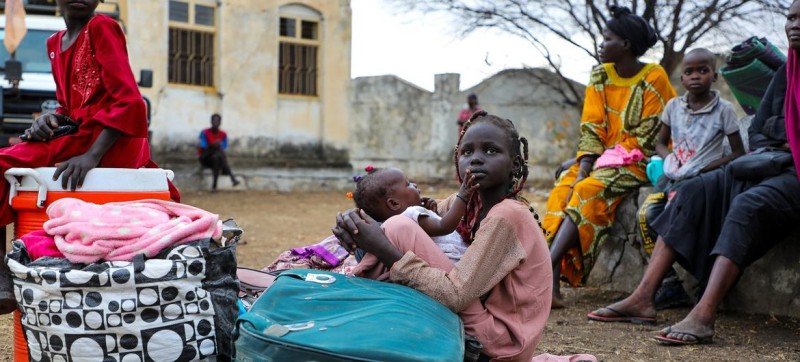Contents
© UNHCR/Charlotte Hallqvist A UNHCR emergency transit centre in Renk in South Sudan is receiving displaced people from Sudan.
Since then, the country has been without a civilian-led government.
A subsequent political process facilitated jointly by the United Nations, the African Union and the Intergovernmental Authority on Development (IGAD) resulted in an agreement being signed in December 2022 between the military and some key civilian political stakeholders, jumpstarting efforts aimed at restoring a credible democratic civilian government.
At the same time, the country’s economy has struggled, and communal clashes and other acts of armed violence increased, with civilians paying a heavy price, with many lives lost and homes destroyed in the Darfur region and the South Kordofan and Blue Nile states.
The continued political crisis compounded marginalization and political grievances, as well as unresolved conflicts over land ownership.

© UNICEF/Donaig Le Du A group of refugees from Sudan rest under a tree after crossing into Chad.
Complex challenges
The challenges facing Sudan are many, including pressing humanitarian and economic needs, ensuring security and justice and respect for human rights, peacemaking, and advancing the democratic transition.
Despite this, following the signing of the political framework agreement in December 2022, the political process continued to make progress at the start of the year with efforts focused on resolving outstanding issues that would pave the way for a final political agreement.
Some facts:
- Sudan has a population of 48 million
- It is the third largest on the African continent
- There are 25 UN entities operating in Sudan
In March, the Secretary-General’s Special Representative for Sudan, Volker Perthes, reported that Sudanese stakeholders were “closer than they have every been” to a settlement and the return to a civilian government.
Fresh clashes derail political talks
Those hopes were dashed when fighting erupted on 15 April between the Sudanese Armed Forces (SAF), led by Lieutenant General Abdel-Fattah Al-Burhan, and the Rapid Support Forces (RSF), led by Lieutenant General Mohamed Hamdan Dagalo, leaving hundreds dead and thousands injured.
Even before the current fighting began, humanitarian needs across the Sudan had reached record levels, with 15.8 million people – about a third of the total population – requiring humanitarian assistance this year. The latest violence has led to acute shortages of food, water, medicines and fuel, while the price of essential items, including transport, have skyrocketed.
The country also hosts over a million refugees and asylum-seekers, including from South Sudan, Eritrea, Syria, Ethiopia, the Central African Republic, Chad and Yemen. Secretary-General António Guterres has called on the parties to immediately cease hostilities and allow all civilians to evacuate from areas affected by the fighting.

© UNICEF/Donaig Le Du Refugees from Sudan continue to arrive in Chad.
The UN in Sudan
The UN has been supporting the Sudanese democratic transition through the efforts of the UN Integrated Transition Assistance Mission in Sudan (UNITAMS), a special political mission headed by Special Representative Perthes.
While hundreds of UN staff members and their families have been temporarily relocated within Sudan or evacuated outside of Sudan, the Organization has pledged to carry on with its lifesaving work with its personnel, both inside and outside the country, focused on the immediate priorities of a sustained ceasefire with a monitoring mechanism; a return to political negotiations; and the alleviation of human suffering.




Comments are closed, but trackbacks and pingbacks are open.